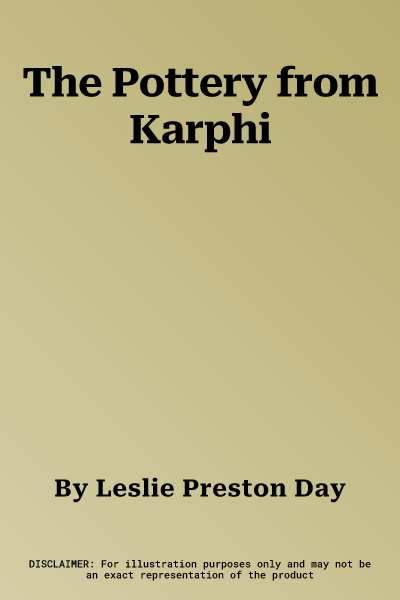The site of Karphi, high above the Lasithi plateau, remains one of the
most extensively investigated settlements of Early Iron Age Greece; it
was excavated by the British School at Athens under the direction of
John Pendlebury in 1937-39. In the report that swiftly followed the
pottery was not presented in detail, though much was discussed in a
later article by Mercy Seiradaki. Consequently there existed serious
problems in dating the remains and understanding their meaning. This
volume now presents a thorough study of the Karphi pottery, much
hitherto unpublished, accompanied by copious new drawings and
photographs. The author's expertise with material from contemporary
Cretan sites, especially from the Kavousi excavations, provides major
insights. Moreover, thanks to careful recording by the excavators and
the survival of the excavation notebooks, the material can be presented
here by context, which permits the date of the settlement to be
clarified and its history to be re-evaluated. While early pottery
appears as small fragments from under floors, streets, and courts, later
LM IIIC whole vessels seem to have been abandoned on floors. The tombs
continued in use long after the abandonment of the settlement. Ceramic
assemblages also help to determine room and building functions, leading
to a reconstruction of social practices at this key site. A chapter by
Eleni Nodarou and Ioannis Iliopoulos presents the results of
petrographic and SEM analyses. Thus, this study serves as a significant
contribution to our overall understanding of Early Iron Age Crete.

